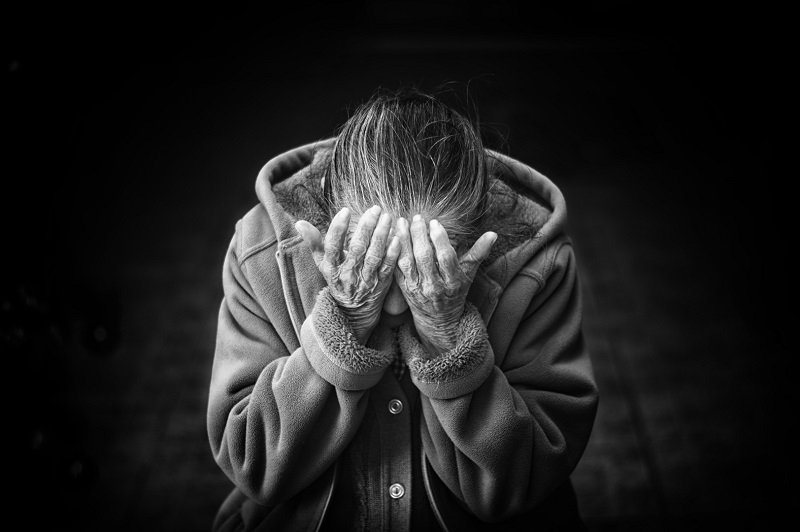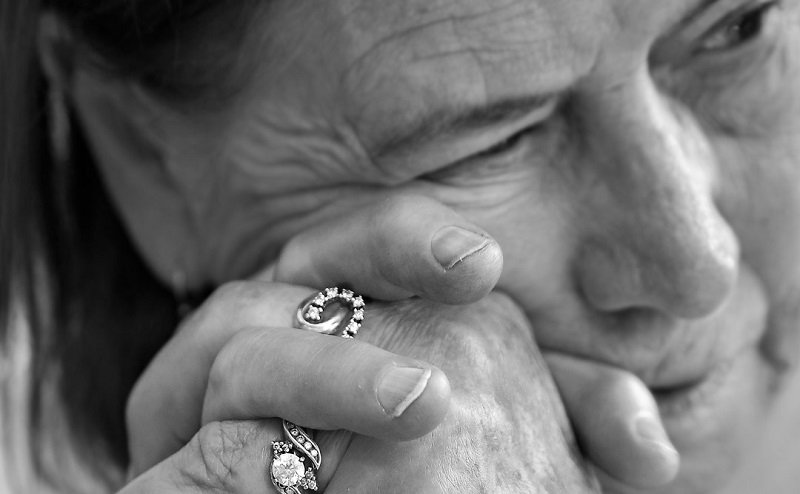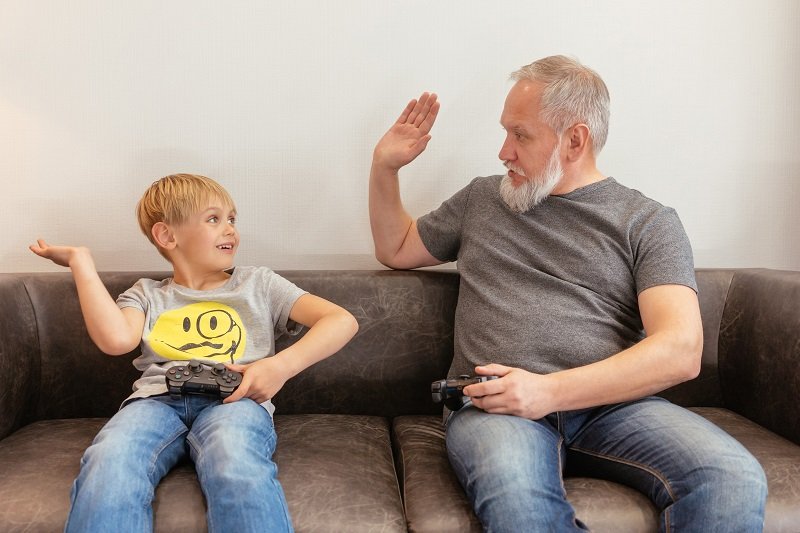Last Updated on June 30, 2025 by Julian Espinosa
Losing someone you love is never easy, but navigating grief during your retirement years brings unique challenges that deserve special understanding and compassion. While you may have decades of life experience to draw from, the reality is that grief in later life can feel more intense and complex than you might expect.
When you’re facing the loss of a spouse, dear friend, or family member at this stage of life, you’re not just mourning their absence—you may also be grappling with significant changes to your daily routines, social connections, and sense of identity. The person you’ve lost may have been your primary companion, your partner in managing household responsibilities, or your closest confidant for decades.
Research shows that mature adults are more likely to experience what experts call “prolonged grief disorder”—a condition where intense grief symptoms persist for months or even years. Studies indicate that among seniors who are currently grieving, about 25% experience complicated grief symptoms, which can significantly impact both physical and emotional well-being.
But here’s what you need to know: experiencing intense, lasting grief doesn’t mean you’re “not coping well” or that something is wrong with you. It means you’re human, and you’re processing one of life’s most profound experiences. This comprehensive guide will help you understand why grief feels different at this stage of life, recognize when you might benefit from additional support, and discover practical strategies for healing while honoring your loved one’s memory.
Remember, there’s no “right” timeline for grief, and seeking help is a sign of strength, not weakness.
Embracing Healing: Coping with Loss in Later Life
The journey of grief becomes uniquely layered and challenging during retirement years. Unlike earlier stages of life, your grief is woven through decades of shared memories, established routines, and deeper personal history. This complexity doesn’t make your experience more difficult—it makes it distinctly yours.
Prefer to listen rather than read?
How Grief in Seniors Can Turn into a Disease?
When you’ve lived through decades together with someone, their absence creates ripples that touch every aspect of your daily life. The morning coffee routine you shared, the evening walks you took together, or simply having someone to discuss the day’s events with—these seemingly small moments become profound absences.

What makes coping with loss in later life is that grief is a landscape that looks different for everyone. How does one find shelter and understanding from friends and family who may never have felt grief the same way? We even measure the validity of grief differently.
Emotions can fluctuate. This is because people coping with loss in later life typically experience a flood of emotions.
These may include a sense of relief in cases of prolonged illness of the departed. Realizing that they somehow feel unburdened by the loved one’s passing often brings on unwarranted feelings of shame and guilt. This can worsen the loneliness and grief of coping with loss in later life.
One moment the heart seizes, teh next you may feel suddenly angry at the partner or loved one for leaving them behind.
When a significant person in their life passes away, many seniors experience a loss of identity, too. Roles and routines are often built around the departed, leaving seniors uncertain about their purpose or place in life.
This sense of being adrift, remorseful, angry, and isolated is among the most painful consequences of coping with loss in later life.

When Grief Becomes Complicated
Mental health professionals now recognize “prolonged grief disorder” as a distinct condition that can significantly impact your quality of life. Research indicates that complicated grief affects between 10% to 20% of all people who experience loss, but it can be particularly challenging during later life.
A comprehensive study found that among seniors experiencing grief, 25.4% were diagnosed with complicated grief symptoms. This isn’t about being “strong enough” or “getting over it”—it’s about recognizing when grief is interfering with your ability to function and enjoy life.
Warning signs of complicated grief include:
- Persistent, intense longing for your loved one that doesn’t diminish over time
- Difficulty accepting the reality of the loss after several months
- Feeling that life has no meaning or purpose without your loved one
- Inability to trust others or engage in relationships
- Extreme difficulty moving forward with life activities
Loss can Lead to Intense and Prolonged Grief in Seniors
Scientists call it complicated grief, and although people of all ages can experience it, it is often shattering for people coping with loss in later life.
In a study published by the US National Institutes of Health, Mark Miller, an assistant professor of psychiatry at the University of Pittsburgh, says that complicated grief affects between 10 to 20 percent of grievers regardless of age.
But those coping with loss in later life are more likely to suffer complicated grief as mortality among old friends and partners looms increasingly large.
The symptoms of this kind of grief in people coping with loss in later life can be alarming and confusing, both for the senior and for members of the family.

“Couples who have aged successfully as a unit of shared responsibility for each other sometimes find that being alone without their partner’s contribution can feel overwhelming,” says Miller.
The warning signs include thoughts, feelings, or behaviours that reflect excessive concerns about the circumstances or consequences of the loved one’s passing.
Studies indicate that many individuals who are coping with loss in later life contemplate the notion that life becomes unendurable following the death of loved ones. Frequently, there is an inclination to pass away and reunite with the departed.
People Coping with Loss in Later Life Often Feel Exhausted
When you experience intense grief, your body’s stress response system goes into overdrive. Elevated cortisol levels over extended periods can increase your risk of heart disease and high blood pressure. This is particularly concerning for seniors who may already be managing other health conditions.
Studies show that bereavement is associated with cortisol response changes, altered sleep patterns, immune system imbalances, and increased inflammation. These physical changes can leave you feeling exhausted, make you more susceptible to illness, and potentially worsen existing health conditions.
The grief-body connection also affects:
- Pain perception and chronic conditions
- Sleep patterns and quality
- Appetite and digestion
- Energy levels and motivation
- Concentration and memory

Grieving Seniors are More Likely to Experience a Decline in Mental Functions
Seniors, like others, experience profound emotions such as sadness, loneliness, anxiety, and depression following the death of a loved one. However, these feelings can be particularly overpowering when you are coping with loss in later life.
In such instances, grieving seniors might experience difficulties with concentration, memory, decision-making, and overall cognitive function.
The stress and emotional strain of coping can impact their ability to focus and think clearly. Grief can often also lead to increased social isolation, which can be especially difficult if the senior has lost a spouse. This isolation can have a huge impact on their mental health.
Seniors may even experience a diminished ability to communicate their feelings and bounce back from stress and illness.

Grief Can Worsen Pre-Existing Conditions
For seniors with pre-existing health conditions like high blood pressure, diabetes, and heart disease, coping with loss in later life can be devastating. That’s because the emotional toll of grief might lead to irregular blood pressure, fluctuations in blood sugar levels, or difficulties in adhering to treatment plans.

Profound and prolonged grief in people coping with loss in later life can also trigger and exacerbate mental health conditions like depression and anxiety. These conditions, when combined with physical health issues, can create a cycle where one affects the other adversely, leading to a decline in overall well-being.
Building Your Support Network
One of the most challenging aspects of grief in later life is that your social circle may have naturally shrunk over the years. Friends may have moved away or passed away themselves, and adult children might live far from home. This makes building and maintaining support connections even more important.
The Healing Power of Connection
Studies show that between 30% and 50% of bereaved adults seek grief support from their primary care physicians, indicating how important it is to have professional support during this time. Don’t hesitate to discuss your grief with your doctor—they can help monitor how it’s affecting your physical health and connect you with appropriate resources.
Consider these support options:
- Family connections: Regular phone calls or video chats with children and grandchildren
- Community support groups: Many communities offer grief support groups specifically for seniors
- Professional counseling: Therapists who specialize in grief and loss can provide personalized guidance
- Faith communities: Many people find comfort in spiritual or religious support during grief
- Online communities: Digital support groups can connect you with others who understand your experience
Overcoming Barriers to Seeking Help
Many people in their generation were raised to be self-reliant and may feel uncomfortable asking for help. You might worry about becoming a burden to others or feel that expressing grief is a sign of weakness. These feelings are understandable, but they can prevent you from getting the support you need.
Remember that seeking help is not a sign of dependence—it’s a sign of wisdom and self-care. Your friends and family want to support you, and professional helpers are trained specifically to assist people through grief. You’re not imposing on anyone by accepting their care and concern.

Practical Strategies for Healing
Honoring Your Loved One’s Memory
Finding meaningful ways to honor your loved one’s memory can be an important part of healing. This might include:
- Creating a memory book or photo album
- Establishing a small memorial garden
- Donating to a cause they cared about
- Sharing stories about them with family and friends
- Continuing traditions they valued
Maintaining Routines While Allowing Flexibility
Structure can provide comfort during grief, but it’s important to allow yourself flexibility too. Try to maintain some regular activities—meals, bedtime, social connections—while being gentle with yourself on difficult days.
Expressing Your Emotions
Many people in their generation weren’t encouraged to express emotions openly, but research shows that sharing your feelings can actually improve your physical health. Studies indicate that expressing grief can help improve sleep, appetite, and overall well-being.
Consider these ways to express your emotions:
- Writing letters to your loved one
- Writing in a journal
- Talking with trusted friends or family
- Joining a support group
- Working with a counselor
- Creating art or music

When to Seek Professional Help
While grief is a natural process, there are times when professional help can make a significant difference in your healing journey. Consider reaching out to a counselor or therapist if:
- Your grief symptoms are interfering with daily activities for more than a few months
- You’re having thoughts of joining your loved one in death
- You’re unable to eat, sleep, or care for yourself properly
- You’re avoiding all social contact and activities
- You’re experiencing panic attacks or severe anxiety
- You’re having difficulty managing other health conditions because of grief
Recent research shows that specialized grief therapy can be particularly effective for adults over 50, so don’t hesitate to seek help if you feel you need it.

Moving Forward While Honoring the Past
Healing from grief doesn’t mean “getting over” your loved one or forgetting them. It means learning to carry their memory with you while still engaging with life. This process looks different for everyone and happens on its own timeline.
You might find that grief comes in waves—periods of intense sadness followed by times when you feel more like yourself. This is completely normal. Some days will be harder than others, and certain dates or events may trigger renewed grief even years later.
The goal isn’t to eliminate grief but to learn to live alongside it. Over time, many people find that their grief transforms from sharp pain to a gentler sadness mixed with gratitude for the love they shared.

Why Acknowledging the Need for Help is the Best Way to Heal and Build Resilience?
Research shows that sharing emotions can improve physical health in seniors. It can correct sleep, appetite, and the overall well-being of older people who confront difficulties with loss in later life.
Sharing loss allows seniors to honour the memory of the departed. By allowing them to openly acknowledge the significance and impact of the loss, people dealing with intense grief in later life can focus on fond memories in a meaningful way.
Openly facing the reality of the loss also enables seniors to adapt to the changes in their lives. It helps them gradually adjust to a new normal without their loved ones and find ways to move forward.
The feeling of loss can persist for a long time, sometimes indefinitely. While it may become more manageable with time, certain triggers or anniversaries might bring back intense feelings of grief even after years have passed.
Finding support and building resilience will help seniors who have survived a painful loss weather the storms of grief with calm and peace in their hearts.
Ultimately, managing intense grief in later life is about openly recognizing and accepting the reality of the loss, no matter how painful that is. It’s about learning to seek and accept help from family, loved ones, and professionals.
This helps seniors accept that their loved one has passed. In turn, this acknowledgment allows them to strat processing their emotions in a reasoned and healthy way.

Understanding Grief in Older People
As you move through your grief journey, you’ll gradually begin creating a new normal. This doesn’t mean replacing your loved one or forgetting your life together—it means adapting to life without their physical presence while keeping their memory alive in your heart.
This new normal might include:
- Developing new routines and interests
- Strengthening relationships with family and friends
- Finding new ways to contribute to your community
- Discovering aspects of yourself you may have forgotten
- Creating new meaning and purpose in your life
Remember that creating a new normal doesn’t happen overnight, and it’s okay to take it one day at a time.
FAQ: Coping with Loss in Later Life
- How long should grief last? Is there a normal timeline?
- There’s no “normal” timeline for grief. While acute grief symptoms often begin to ease after 6-12 months, it’s completely normal for grief to continue in waves for years. Some people find their grief transforms over time rather than disappearing entirely. If your grief is significantly interfering with daily life after 6 months, consider speaking with a counselor.
- Is it normal to feel relief when someone dies after a long illness?
- Yes, feeling relief is completely normal and doesn’t mean you loved them any less. Relief might come from knowing they’re no longer suffering, or from the end of a difficult caregiving period. Many people experience guilt about feeling relief, but this is a natural response to a challenging situation.
- I’m having trouble sleeping and eating. Is this normal?
- Sleep and appetite changes are very common during grief. However, if you’re unable to sleep more than a few hours per night or if you’re losing significant weight, it’s important to speak with your doctor. These physical symptoms can affect your overall health and your ability to cope with grief.
- Should I make major life decisions while grieving?
- It’s generally recommended to avoid major decisions (like moving, major financial changes, or giving away belongings) for at least six months to a year after a significant loss. Grief can affect your judgment and decision-making abilities, so it’s better to wait until you’re feeling more emotionally stable.
- My adult children live far away. How can I stay connected for support?
- Technology can be a wonderful tool for staying connected. Consider regular video calls, sharing photos and memories through digital albums, or even watching movies “together” online. Many families find that scheduling regular check-ins helps everyone feel more connected despite the distance.
- I feel like I’m bothering people when I talk about my grief. Am I?
- People who care about you want to support you, even if they’re not sure how to help. Most people would rather know you’re struggling than have you suffer alone. If you’re concerned about overwhelming one person, consider spreading your support across multiple people or joining a support group where grief is the expected topic of conversation.
- Is it normal to see or hear my deceased loved one?
- Many people report sensing their deceased loved one’s presence, hearing their voice, or even seeing them briefly. This is a normal part of grief and doesn’t indicate a mental health problem. These experiences often provide comfort and typically become less frequent over time.
References
- Boelen, P. A., & Smid, G. E. (2017). Cognitive behavioral therapy for complicated grief in older adults. Psychiatry Research, 258, 79-85.
- Kersting, A., Brähler, E., Glaesmer, H., & Wagner, B. (2011). Prevalence of complicated grief in a representative population-based sample. Journal of Affective Disorders, 131(1-3), 339-343.
- Lichtenthal, W. G., Nilsson, M., Kissane, D. W., Breitbart, W., Kacel, E., Jones, L. K., & Prigerson, H. G. (2011). Underutilization of mental health services among bereaved caregivers with prolonged grief disorder. Psychiatric Services, 62(10), 1225-1229.
- American Heart Association. (2023). How grief rewires the brain and can affect health – and what to do about it. Retrieved from heart.org
- WebMD. (2024). How Grief Can Affect Your Health. Retrieved from webmd.com
- Sleep Foundation. (2023). Grief and Its Effect on Sleep. Retrieved from sleepfoundation.org
- Prigerson, H. G., Shear, M. K., Jacobs, S. C., Reynolds, C. F., Maciejewski, P. K., Davidson, J. R., … & Zisook, S. (1999). Consensus criteria for traumatic grief: a preliminary empirical test. British Journal of Psychiatry, 174(1), 67-73.



